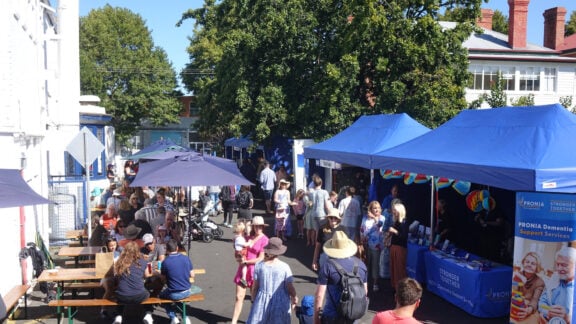An annual or a once-every-few-years trip to Greece is a non-negotiable for many Greek Australians, and according to data captured by the Greek Ministry of Tourism most Aussie travellers boarding the 17+ hour flight to Greece between June 2021 and April 2022, were not repeat travellers but rather first-timers to the country.
The study results released by the Ministry’s Directorate for Research this month were based on responses received through the VisitGreece application.
Separately, a qualitative research project aimed at recording “the travel profile of the members of the Greek-Australian community, a market loyal to Greece”.
This undertaking was based on online interviews with a total of six “key informants and representatives of the organizations of the Greek diaspora in Australia to form a general picture of the characteristics of the Australian diaspora tourism market*”.
Research based on the VisitGreece application responses
The research project based on visitor profiles from the VisitGreece application was informed by a questionnaire available for completion by app users.
During the period between 1/6/2021 and 4/4/2022 when the questionnaire was available, it was completed by 874,434 users, with a total of 1,251 being residents of Australia.
Was it their first time travelling to Greece?
For 76.7 per cent of respondents, yes, with only 23.3 per cent stating they had visited the country before.
Most answered they were travelling “for leisure” (58.5 per cent), with those travelling to see friends and relatives accounting for no more than 32.8 per cent of respondents, while business was the third most quoted reason for travel.
Just over 30 per cent of respondents stayed with friends and relatives, with paid accommodation options combined (suites and villas, hotels, rooms to let, mansions, camping sites) amounting to a total of 39 per cent.
The questionnaire also recorded the most popular activities for travelers in Greece, with gastronomy and Greek culture topping the list at 42.7 per cent and 41.7 per cent respectively. Other preferred activities included exploring nature, spa/wellness, yachting, clubbing and diving.
Qualitative research on the Greek Australian expatriate travel profile
Insights and conclusions published in the report draw on six key factors informing the travel behaviours of Greek Australians.
On the average duration of travel they note: “Due to the long distance and cost, Greek-Australian visitors stay for a considerable period of time in the country, e.g. for one month or between six and eight weeks.”
The report highlights “three main categories” of travellers with associated characteristics:
- Older first-generation immigrants who visit their place of origin in Greece as regularly as possible.
- Second generation Greek Australians who have a strong desire to visit Greece “despite their limited contact with the Greek language and culture”, but visit less frequently and maintain looser ties with Greece due to “no experiential connection with the place of origin.”
The report, drawing on key stakeholder interviews, states: “Their main motivation when visiting is to take a holiday and they choose popular tourist destinations such as Athens, Mykonos, Santorini, but also the Cyclades, the Ionian Islands and Crete and do not seem to wish to explore less popular destinations.”
- New immigrants who moved to Australia during the economic crisis years who visit Greece as often as possible to see friends and family.
“As their first destination they choose the one that connects them with Greece from a familial point of view and thus return to their own homes and holiday homes. Therefore, they do not behave as tourists when they are in Greece but as native Greeks,” the report states.
With regards to deterrents for Greek Australians visiting Greece, the report’s authors highlight the high cost of the flight as the main factor, with post-pandemic ticket price increases making the cost “prohibitive” for some.
“While 5 years ago tickets ranged from 1200 and 1300 euros per person, now they amount to 2200 euros per person, a price increase of around 30 per cent.”
The long duration of the journey from Australia to Greece is also among deterrents identified, as well as differences in seasons between the two countries, competition within the overseas tourism market with South-East Asian destinations, and the lack of concerted effort to attract a specifically Greek Australian clientele.
*A footnote included in the report relating to the qualitative study states: “During the primary research it was found that it would be useful to carry out a quantitative survey for the detailed recording of their travel preferences, which the Directorate of Research is planning for the next period.”









